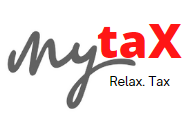“Demystifying Sales Tax in Pakistan: What You Need to Know”
Introduction
Welcome to mytax.net.pk, your ultimate guide to understanding sales tax in Pakistan. Whether you’re a business owner, an entrepreneur, or a tax professional, navigating the intricacies of sales tax can be a daunting task. In this comprehensive blog post, we will break down the key concepts, regulations, and procedures related to sales tax in Pakistan, empowering you with the knowledge to stay compliant and optimize your tax strategies.
Understanding Sales Tax in Pakistan
Sales tax is a consumption tax imposed on the sale of goods and services in Pakistan. It is regulated by the Federal Board of Revenue (FBR) and is governed by the Sales Tax Act, 1990. The purpose of sales tax is to generate revenue for the government while ensuring a fair distribution of the tax burden among the public.
Registration for Sales Tax
If you engage in any taxable activity, it is mandatory to register for sales tax with the FBR. Registering your business not only ensures compliance but also allows you to claim input tax credits on your purchases. At mytax.net.pk, we offer a seamless registration process that simplifies the often complex procedure, saving you time and effort.
Sales Tax Rates and Categories
Sales tax rates in Pakistan vary depending on the category of goods or services. The standard sales tax rate is 18% on most taxable supplies. However, certain goods and services are subject to different rates, such as:
- Zero-rated supplies: These are goods or services that are taxable but carry a sales tax rate of 0%. Examples include exports, certain agricultural products, and basic food items.
- Reduced rates: Some goods and services are subject to a reduced sales tax rate, typically 7.5%. This category includes specific industries like printing, packaging, and certain petroleum products.
Sales Tax Invoices and Records
Maintaining accurate sales tax records is crucial for businesses in Pakistan. You must issue sales tax invoices to your customers, clearly indicating the amount of sales tax charged. These invoices should include essential information such as the name, address, and registration number of your business, as well as details of the goods or services supplied.
Sales Tax Returns and Payments
As a registered taxpayer, you are required to file regular sales tax returns with the FBR. Typically, sales tax returns are filed on a monthly or quarterly basis, depending on the nature of your business. At mytax.net.pk, we provide user-friendly software that automates the return filing process, minimizing errors and ensuring timely compliance.
Input Tax Credits and Refunds
One of the significant advantages of being a registered taxpayer is the ability to claim input tax credits on your purchases. Input tax credits allow you to offset the sales tax paid on your business expenses against the sales tax collected on your sales. If the input tax exceeds the output tax, you can claim a refund from the FBR.
Sales Tax Audits and Penalties
The FBR conducts audits to ensure compliance with sales tax regulations. It is essential to maintain accurate records, including purchase invoices, sales invoices, and bank statements, to substantiate your tax returns. Non-compliance can lead to penalties, fines, and even legal consequences. At mytax.net.pk, we offer comprehensive audit support and compliance services to minimize the risk of penalties.
Conclusion
Understanding sales tax is crucial for businesses operating in Pakistan. By registering with the FBR, maintaining accurate records, filing timely returns, and availing input tax credits, you can ensure compliance and optimize your tax strategies. At mytax.net.pk, we are committed to simplifying the sales tax process for you, providing expert guidance, and offering user-friendly software to streamline your tax obligations.
Visit mytax.net.pk today to learn more about sales tax in Pakistan, access our resources, and experience our comprehensive tax services. Empower your business and stay ahead in the ever-evolving tax landscape!
